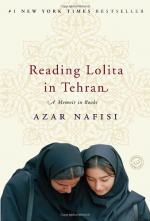|
This section contains 209 words (approx. 1 page at 400 words per page) |

|
Part 1: Chapter 10 Summary
Nafisi explains that Lolita is a critique of the underlying perspective of totalitarian systems. Humbert, the villain molester of Lolita, is all the more frightening because he behaves normally in other aspects of his life. Humbert's possession of Lolita was, for him, a quest for some perfect image - a Lolita more real and perfect than even the girl herself. Humbert must quash Lolita's true nature and replace it with this perfect vision. Yet, Lolita's true nature and glimmers of her true past insert themselves nevertheless. Lolita, like Nafisi's students, is a prop in someone else's vision of perfection.
Likewise, the reality of Iran's past is irrelevant to the authorities trying to bring to flesh their vision of the perfect Koranic society. The past is not so much lost as it is simply absent. Lolita, like Nafisi's students, is strangely meaningless...
(read more from the Part 1: Chapter 10 Summary)
|
This section contains 209 words (approx. 1 page at 400 words per page) |

|




